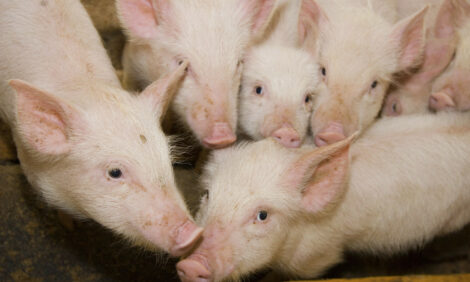



2023 WPX: Unexpected consequences of California’s Prop 12
Learn more about the fall out of Prop 12 implementationMaria Zieba, Vice President of International Affairs for the US-based National Pork Producers Council (NPPC), spoke with The Pig Site's Sarah Mikesell at World Pork Expo in Des Moines, Iowa, USA.
International trading partners see opportunity
“Unfortunately, one of the implications of California’s Proposition 12 that most consumers in California did not realize is that in the conversations that I’ve had with some of the US foreign trading partners and competitors internationally, they’ve said ‘I think I can comply. This creates an opportunity for us foreign competitors, now that US pork producers can't compete in California and can't meet the California Prop 12 standards of 24 square feet, but I think I can,’” said Maria Zieba, VP of International Affairs at the NPPC.
California voters inadvertently have given the opportunity for pork producers around the globe to supply pork to California and other parts of the US, allowing pork to be shipped from thousands of miles away rather than being purchased from US pork producers.
“Prop 12 implications are going to have quite an impact on the carbon footprint that we keep talking about, especially for those people from California,” said Zieba. “A lot of people like to buy local, but it doesn't sound like we might be able to buy local anytime soon in California.”
Is animal welfare really impacted?
Another issue that California voters might not have realized with Prop 12, it does not really do anything for animal welfare. The California Department of Food and Agriculture (CDFA) has since come out and verified this, according to Zieba.
“Now you have this double impact of Prop 12,” said Zieba. “It is not doing anything for animal welfare, and beyond that, we know that if we are going to have to transport pork from Europe to California, which is a much longer distance than Iowa or Arizona or Utah to California. This is certainly going to create an issue for us, and it is going to affect consumers in California and possibly globally.”
The economic outcome of Prop 12 cannot be fully determined. However, it’s going to be tough to meet many of the requirements for US pork in California, but Californians are significant consumers of US pork.
“I don't think with the estimates that have been given, we can meet the demand in California domestically,” said Zieba.
California consumes about 15% of US consumption and production.
“We know for a fact that we do not meet the Prop 12 criteria, and we won't be able to fulfill all those orders in California,” she explained.
CDFA has been slow in rolling out the regulations, which has been a hinderance to US producers trying to comply with the new requirements.
“It's really hard for US producers to comply in the next month since the final regulations were just released,” she said. “It is not enough time for US producers to comply and there is a lot of additional structural and other associated costs.”
New Prop 12 requirements are imposing additional costs to pig producers. To maintain their current herd size, producers will need bigger barns because with the 24 square feet space requirement, producers are not going to be able to have as many animals in their existing barns. Just one example of an added expense to be considered is increased electricity costs to heat and cool barns.
“These are all added costs, not to mention the additional land space that producers will need, so there's a lot of other issues that go beyond the supposed animal welfare,” said Zieba.
Click here for more on Proposition 12.







